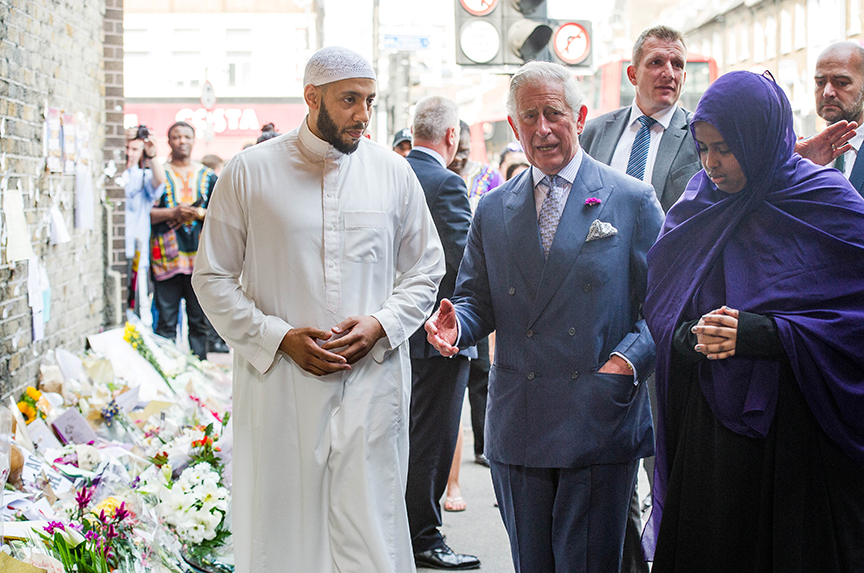 British Prime Minister Theresa May called for a re-evaluation of the United Kingdom’s counterterrorism strategy in the wake of recent terrorist attacks in Manchester and London. This must be a top priority.
British Prime Minister Theresa May called for a re-evaluation of the United Kingdom’s counterterrorism strategy in the wake of recent terrorist attacks in Manchester and London. This must be a top priority.
The UK’s current counterterrorism strategy—CONTEST—is organized around four “work streams” also known as the four Ps: Pursue (to stop terrorist attacks), Prevent (to stop people becoming terrorists or supporting terrorist activities), Protect (to strengthen protection against a terrorist attack), and Prepare (to mitigate the impact of a terrorist attack).
Of these, Prevent has been the most controversial in part because of the government’s unwillingness to release information on its evaluation of this program and pushback from Muslim communities.
CONTEST’s main goal is not only to address the immediate threat from terrorist attacks, but also the factors that foster radicalization. This strategy stresses that it is not possible to eliminate threats by simply arresting and prosecuting more people.
Prevent’s objective is to respond to the ideological challenge of terrorism and the threat from those who promote it—to prevent people from being drawn into terrorism and ensure they are given advice and support—and to work with a wide range of sectors (education, criminal justice, faith, health etc.) where there are risks of radicalization. The premise behind the program is simple: the best way to stop terrorism is by stopping people from becoming terrorists.
The program engages communities—supporting groups that offer resources to vulnerable people, working with religious groups and institutions to provide guidance, and working with local schools and industries to provide training.
However, the UK government has released little information on the evaluation of Prevent. The government’s annual report on CONTEST for 2015 notes that 70 percent of community alerts that year were linked to Islamic extremism, 15 percent to far-right extremism, and the last 15 percent to other forms of extremism or no specific ideology at all. The home secretary has said that in a vast majority of cases there were no lingering concerns that the individual would be drawn to terrorism. But the government hasn’t provided the data to back up these claims.
A report put together by the Open Society Justice Initiative, an NGO that promotes human rights, recommends the government “publicly disclose data on total number of individuals referred to and processed through Prevent… as well as the breakdown of these figures by age, type of extremism, and referring authority.” This data must be available in the public domain. Policy cannot be built on no evidence or a suppression of evidence. Without legitimate evaluations, and justifications for the program, pushback and controversy surrounding Prevent will only continue to grow.
The UK’s Muslim community has pushed back against Prevent. Muslims, as well as non-Muslims, have expressed anger and disappointment as they accuse the government of “turning every young Muslim into a suspect.” Harun Khan, secretary-general of the Muslim Council of Britain, said that Prevent has isolated the people the government is trying to reach out to leading young people to feel targeted.
The Open Society Justice Initiative recommended a major government rethink of its counterterrorism strategy. It found that Prevent is doing more harm than good, claiming that when wrongly targeted under Prevent some Muslims begin to question their place in British society.
Similarly, a United Nations Human Rights Council report also criticized the strategy, calling it “inherently flawed” and “inconsistent with the principle of the rule of law.”
For Prevent to be successful, the community must be engaged in the program. David Omand, the United Kingdom’s security and intelligence coordinator at the time the Prevent program was launched, said in an interview with the Open Society Justice Initiative last year, “The key issue is, do most people in the community accept [Prevent] as protective of their rights? If the community sees it as a problem, then you have a problem.”
Just a couple of months ago, there had been few high-causality attacks on British soil since the London transit bombings on July 7, 2005. This is no longer the case. Since March there have been four major terrorist incidents in the UK, including one in which an attacker was known to British intelligence and had even appeared in a documentary about British jihadis.
Judging by the June 19 attack, in which a white British man rammed a rental vehicle into a group of Muslims in London, a greater emphasis also needs to be placed on countering far-right extremism.
Home Office statistics have shown that while threats from Islamic extremists still account for the majority of terror arrests, the number of domestic-terrorism-related arrests have increased by 380 percent since last year. It is no longer appropriate to simply claim that Prevent needs to be reformed because it is unpopular; it needs to be revamped because it is inherently flawed and cannot counter the new types of threats that the UK is facing, both from Islamic and far-right extremists.
While May has gotten numerous things wrong in the past couple of months, she was correct in her about-face on counterterrorism policy for which she was responsible as home secretary. As the UK faces a new phase of terror its government needs to re-evaluate its counterterrorism strategy to address the growing security threat and rebuild community relations throughout the country at a time when Britons are feeling increasingly divided.
Elizabeth Ball is a communications intern with the Atlantic Council’s Brent Scowcroft Center on International Security.
Image: Britain’s Prince Charles visited the scene of the Finsbury Mosque attack in London alongside Imam Mohammed Mahmoud, who protected the attacker after the incident, on June 21. One person was killed and eleven wounded after a white British man drove a van into a crowd of Muslim worshippers in Finsbury Park in north London on June 19. (Reuters/John Nguyen)

